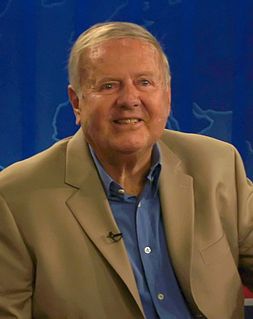A Quote by Adam Smith
That this is the source of our fellow-feeling for the misery of others, that it is by changing places in fancy with the sufferer, that we come either to conceive or to be affected by what he feels, may be demonstrated by many obvious observations, if it should not be thought sufficiently evident of itself. When we see a stroke aimed and just ready to fall upon the leg or arm of another person, we naturally shrink and draw back our own leg or our own arm; and when it does fall, we feel it in some measure, and are hurt by it as well as the sufferer.
Related Quotes
I will remember the kisses our lips raw with love and how you gave me everything you had and how I offered you what was left of me, and I will remember your small room the feel of you the light in the window your records your books our morning coffee our noons our nights our bodies spilled together sleeping the tiny flowing currents immediate and forever your leg my leg your arm my arm your smile and the warmth of you who made me laugh again.
The misfortune of others is our misfortune. Our happiness is the happiness of others. To see ourselves in others and feel an inner oneness and sense of unity with them represents a fundamental revolution in the way we view and live our lives. Therefore, discriminating against another person is the same as discriminating against oneself. When we hurt another, we are hurting ourselves. And when we respect others, we respect and elevate our own lives as well.
Are we our bodies? Is a small person less than a big person, then? If we were our bodies, then when we lost an arm, or a leg, would we be less, would we begin to fade from existence? No. We are the same person. We are not our bodies; we are our thoughts. As they form, they define who we are, and create the reality of our existence.
Does the open wound in another's breast soften the pain of the gaping wound in our own? Or does the blood which is welling from another man's side staunch that which is pouring from our own? Does the general anguish of our fellow creatures lessen our own private and particular anguish? No, no, each suffers on his own account, each struggles with his own grief, each sheds his own tears.
In the fall, you don't grieve because the leaves are falling and dying. You say, "Isn't it beautiful!" Well, we're the same way. There are seasons. We all fall sooner or later. It's all so beautiful. And our concepts, without investigation, keep us from knowing this. It's beautiful to be a leaf, to be born, to fall, to give way to the next, to become food for the roots. It's life, always changing its form and always giving itself completely. We all do our part. No mistake.
And, like poor Phaedra, we fall in love not with who we want to fall in love with, but with one who moves us, and sometimes it is the last person we should fall in love with. Our involuntary choice is not always the right one, and sometimes it is actually the worst one, hence our suffering. And then, of course, there is the completely different situation of the loving people where, over the years, the love they once felt for each other fades and they can't go on. They feel their love dying, but are unable to bring it back to life.



































